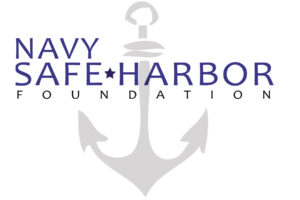
Sitrep
Oct 2023 Vol. 13
The Foundation continues to support our medically retired Sailors, their families, and caregivers as the Warrior Games resume competitions following a pause due to COVID-19. This year, the Foundation is supporting a full range of training camps and Warrior Game participation in the 2024 Warrior Games, and we look forward to a very competitive season for our Sailors. As I write this, we are finalizing the details for becoming the Navy’s Platinum Sponsor for the 2024 Warrior Games, expanding our outreach to those still on active duty. This is an exciting addition to our support of the Navy Wounded Warrior program, and we look forward to this year’s games as a Platinum Sponsor. Of course, the Foundation continues our support of Sailors and families in other areas, including help with housing costs, transportation, food, and wherever else the Navy asks for our support. I am also happy to report that we are resuming our caregiver workshops as we adapt to the consequences of COVID-19 over the past few years. We have had a very fruitful year thanks to your generosity.
Planate, led by NSHF Director Chris Decker, recently sponsored a fashion gala in Washington DC that was a spectacular evening of fashion and fun and a very successful fundraiser. We recently conducted our annual Washington DC area golf tournament, spearheaded by NSHF Vice Chairman Jeff Hathaway, and by all reports, it was a resounding success. Our Florida shipmates will have a chance to participate in the annual Jacksonville golf tournament later in the year, thanks to the leadership of NSHF Director Mark Vanderberg. Our final big event in 2023 will be the Veterans Day luncheon at the Army Navy Country Club on November 10th. Thanks to NSHF Director David Vardeman for his tireless efforts in making sure the luncheon is a most elegant affair befitting our Nation’s Veterans. We could not continue to answer all bells from the Navy without the generous support of our sponsors and your donations, and I am most grateful for your support. Please tell a friend about the Safe Harbor Foundation and our work so that we can grow our network of supporters. Our Sailors and their families deserve all the help we can muster.
Smooth SailingLou Crenshaw, Chairman
Expressing the Inexpressible: Healing for Caregivers Through Art, Writing, and Community
Ben Weakley, Director of Development, Community Building Art Works
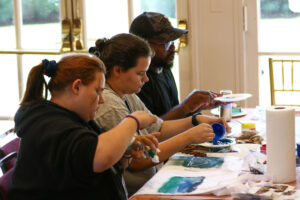
America’s Wounded Warriors need care for injuries both seen and unseen. Beyond the physical aspects of rehabilitation, addressing the emotional and psychological well-being of injured Veterans is paramount. But what about the caregivers who support them?
Caregivers of wounded Veterans understand the unique challenges that come with supporting loved ones on their journey to recovery. Artmaking and expressive writing can be invaluable tools for spouses, family members, and other caregivers who navigate their own significant life changes alongside their injured service member or Veteran.
Community Building Art Works, a non-profit based in Bethesda, Maryland, brings together Veterans, caregivers, and military families in community spaces where self-expression through the arts transforms loneliness and isolation into empowerment and belonging. Here are some of the benefits caregivers have found in our creative workshops.
A Safe Outlet for Emotions. Artmaking and expressive writing offer caregivers a safe space to give voice to their emotions. Whether it’s the elation of a small victory, the frustration of a setback, or the profound grief and sadness that often accompany adjustment to life after their loved one’s injuries, these creative outlets provide non-judgmental channels to process complex feelings. Writing and making visual art that tells our story allows us to know how we feel and explore what we want to do about our circumstances. When we know how we feel, and feel empowered to express those feelings to others who bear witness, we can begin to heal.
Stress Reduction. The responsibilities of caregiving can be overwhelming, and this is where art and writing step in. Engaging in these activities can reduce stress and promote relaxation. Creativity stimulates the release of endorphins, the body’s natural mood boosters, offering caregivers moments of solace amidst their demanding roles.
Strengthening Bonds. Sharing ourselves through art and writing can be instrumental in fostering communication and connection. For caregivers who may find it challenging to express themselves to their loved ones, being witnessed by another caregiver with similar experiences can be transformative. Creative outlets offer alternative ways to share thoughts, experiences, and emotions, often allowing caregivers to express what is otherwise unspeakable.
Building Resilience. Creativity cultivates resilience by encouraging problem-solving and adaptability. Caregivers often confront unexpected challenges and changes in their daily routines. Visual art and writing can help them develop the skills to navigate these situations creatively and gracefully.
Expressive Arts in Community: How it Works. The CBAW workshop formula is simple, yet powerful. A facilitator, always a professional artist at the top of their field, guides participants through an example poem or painting, then provides a prompt for participants to start their own piece of writing or visual art. After 15 or 20 minutes of focused time, participants have time to reflect on their experiences or share their work with the group. Facilitators create a gentle, encouraging space where the community bears witness to each participant’s story. Over time, more participants choose to read or show their work, creating powerful moments of connection.
The aim of artmaking and expressive writing isn’t to produce masterpieces but to harness the healing power of creativity. Caregivers deserve these acts of self-care and the healing power of belonging that comes through self-expression witnessed by safe, supportive community. By nurturing their own well-being, caregivers can expand their own resources and continue to provide the invaluable support their wounded Veteran needs.
CBAW offers free, virtual expressive writing and visual art workshops to Veterans, service members, and military caregivers anywhere in the world several times each week. To find out more about CBAW’s mission and impact, you can visit https://cbaw.org.
***CBAW has been a strong supporter of the NSHF Caring for the Caregiver program
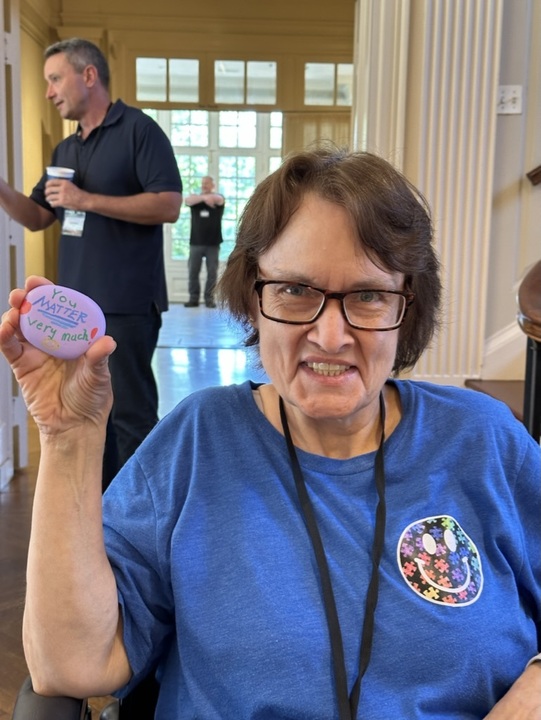
Caregiving is natural until it becomes a dedicated role
Jill Christie Marion T. Valenzuela, Caregiver to a NWW
Being a caregiver comes with the package as soon as we get married (as far as what I learned from my family). Cooky and I had been best friends before we married, and caring for each other was natural.
I have known my husband since high school, and I saw the transformation he went through before the Navy, during the Navy years, and what comes before exiting the service up to now. It was interesting, from my perspective, because I always do my best to see the silver lining in every challenging situation we encounter in the seasons of our family life.
Being nurturing and caring was never an issue for me. Growing up, we were brought up to mind others before our needs, especially as females; we (my family) embrace the role of the primary caregivers. It even comes to the point where we seem to be spoiling our husbands because we do almost everything for them and let them fulfill their primary duties as household providers.
Our journey with Navy Wounded Warrior (NWW) began when Cooky returned to America after our most extended overseas duty station. I noticed significant changes in his mood, sleep, and behavior. Although, as a nurse, I already suspected something different with him while we were still overseas. He was mostly underway and deployed when we were there, and we had a few shore duties that made him stay longer with us. I did not summon him to seek help! He was diagnosed with issues when he changed his rate from Corpman to Substance Abuse Counselor (SAC). He went through the course school for the SAC before our move back to the States. Technically, he needed to be back here before us to finish the course for SAC.
During that transition, Cooky was going through heavy stressful situations. Then, the move back opened the door for him to advance as Chief Petty Officer, which added more stress. We received it as a blessing, not knowing all of the overflows of responsibilities were ways for him to open the vulnerabilities he’d been bottling in for years since his deployments. My husband was very resilient, and he was always a happy guy. He was always a person who said everything would be okay. And I knew something was not OK when he began having mental health issues with this move back. He became reticent, would burst into anger, would not sleep until beaten, would wake mid-sleep with night terrors, would binge eat, and was terrified of crowds and certain noises. My suspicions were all pointing in one direction – PTSD!
Along that line of thinking, my husband got a complete diagnosis from an Army Medical provider at Madigan Army Hospital at Joint Base Lewis-McChord. He went through all the diagnostics for mental health evaluations, was directed to the NWW, and was enrolled by his Navy providers back here in Naval Base Hospital Kitsap Bremerton. I was scared I would have to deal with all these things alone! I mean, my background in nursing held my nerve to at least have some knowledge to help my husband, but I was also terrified that my children would not have enough of my attention because of his condition. They are young, happy boys, and I feared what it would do to them seeing their dad with such behaviors.
Until we got to meet our NWW providers, where the doctors and case workers showed me that we would never be on this journey alone. They were all very supportive, and I could at least imagine that when my husband is going through some issues, we have others to help us through this. And true enough! Cooky is in a lot of programs as I write this. He could join camps for athletics through the NWW, and I was selected to join the Caring for the Caregiver program in VA. We have ongoing programs that allow caregivers to participate in R&R programs to recalibrate. And I am sure there are more ways for us caregivers to help ourselves be better caregivers and do marvelous jobs in our new roles in life.
I must say that caregivers do many things that not everyone does. I thought it was normal for wives to do everything for their husbands until I realized it was not. We, as wives, need to be ourselves, too, for the family to balance roles. The journey of marriage itself is already a good amount of balancing. It even became more challenging when one parent was dealing with health issues (and for Cooky, it is not just mental health; he is “broken inside-out”). The boat needs to stay afloat, as I say. And I need to navigate the waves with minimal help from my sailor. I assumed that captaining role when he got “sick.” I made an enormous sacrifice to care for my home and gave up my career. It is a tough choice and a choice that can not be made lightly.
Caregiving is a selfless role. It is nothing about my glory. It is all for my husband and his well-being. I can go back to my career and be away from all the stress and uncertainty I am facing right now. But, I decided long ago to be a nurse in my home. So, it is fitting that God prepared me to do all that. Then, I also have the support I need to replenish my energy through the Caregiver Program.
I do have to say, though, that caregivers need more support. Accessibility is needed. It is a tough job that needs more attention when the tough times hit us hard. I am reaching out now to say that the program should be dynamic and multifaceted. And it should be consistent year-round. One opportunity to participate is a great break. However, consistency is essential to our continued growth and success as caregivers. Like any training or practice in life, consistent training sharpens a professional’s skills and abilities. That applies the same to caregivers. We can only do what we do daily as a muscle memory in response to our daily needs. But when we face new challenges, we can make wise decisions with consistent training.
I do hope that there are more opportunities for us to improve. I am always excited to see more caregivers hold hands and share our journeys. It is reassuring that our role is as important as any professional role in our military society.
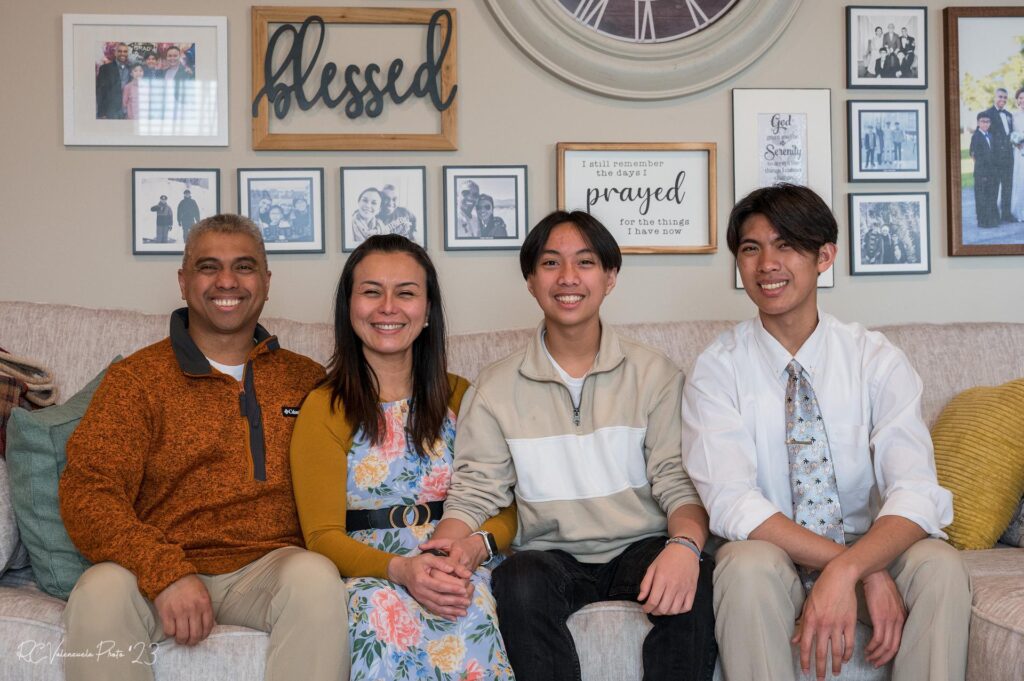
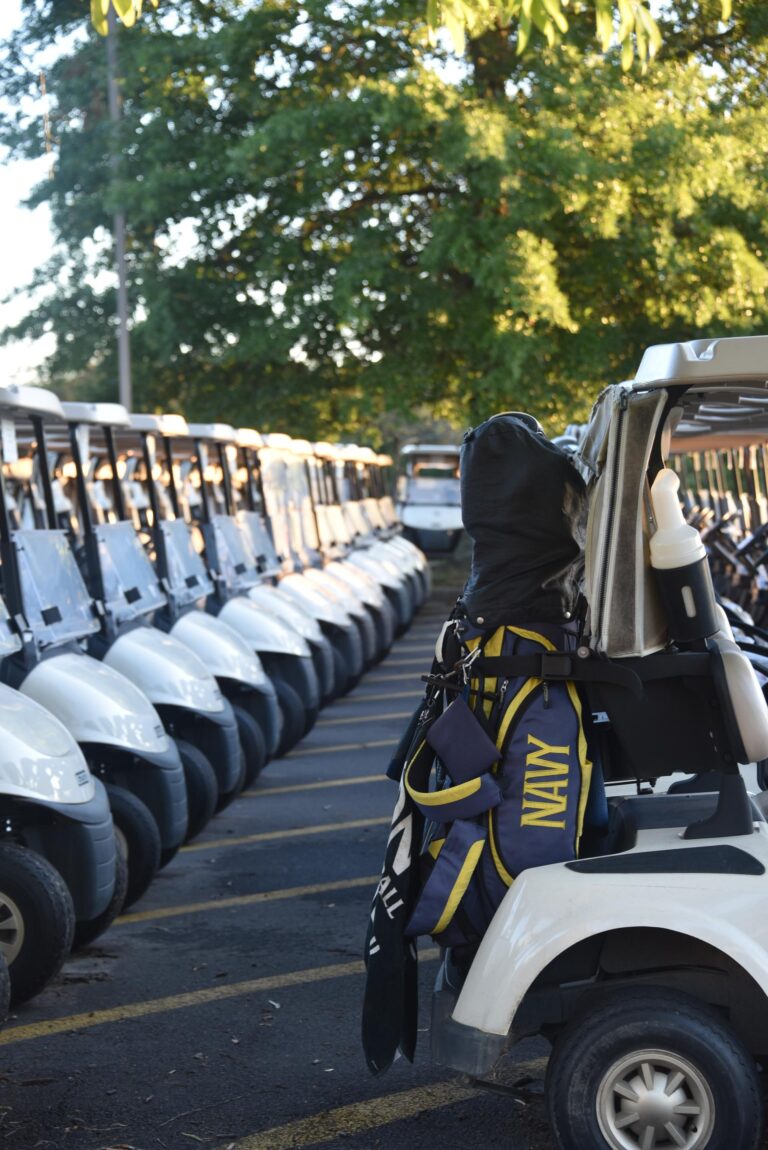
Events Calendar
Our Contact Information
- 571-970-6369
- safeharborfoundation.org
- 2961-A Hunter Mill Rd., Suite 644 Oakton, VA 22124-1704
Leave a Reply